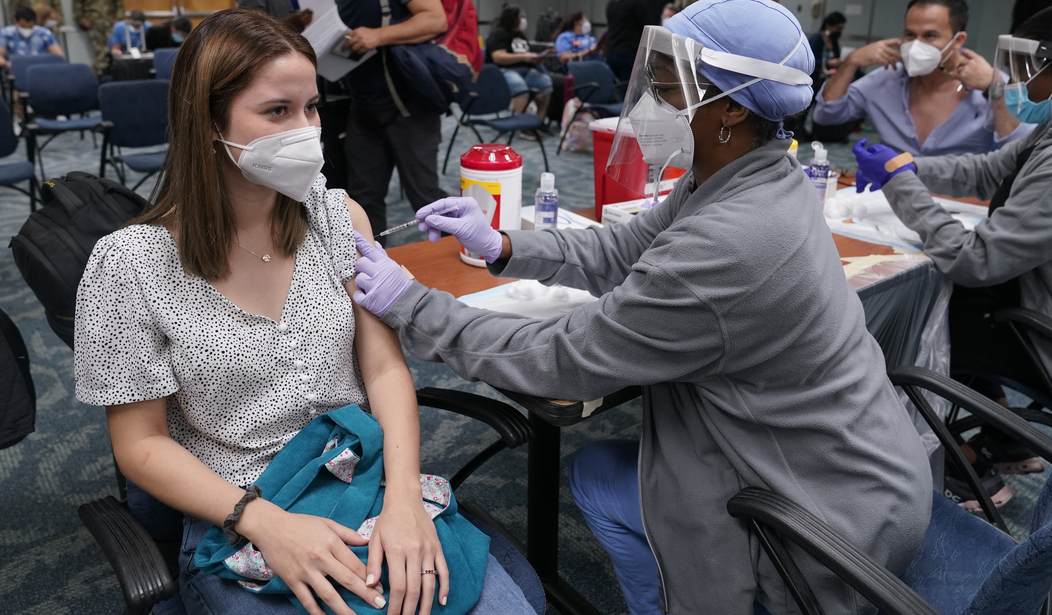A federal appeals court has sided with Indiana University and its vaccine mandate for students and employees. The ruling Monday allows the university to go forward with its plan to require all students and employees to be vaccinated in order to be on campus.
This case is seen as a precedent-setting one. This latest ruling is the highest court decision regarding college immunization mandates. The Seventh Circuit Court of Appeals in Chicago found the mandate to be reasonable “in pursuing public health and safety for its campus communities.” To put it bluntly, the judge said if students and employees don’t like the ruling, they can go elsewhere. There are exemptions allowed.
The policy makes vaccination a condition of attending the university, and students who don’t want to get vaccinated can also seek “ample educational opportunities” elsewhere, according to the appeals court ruling. Still, the vaccination policy allows exemptions on religious and medical grounds, which the court said provides constitutional accommodations for those who qualify.
The judge wasn’t being flippant, he was stating a fact. Being vaccinated is a personal decision and if a student or employee isn’t willing to be vaccinated as a condition of being on campus, then there are other schools at which to work or attend classes. Three Republican-nominated judges comprised the panel that heard the case. The judges point to a 1905 case that allowed states to mandate members of the public be vaccinated against smallpox. This mandate by the university was less strident than the smallpox vaccine mandate because it allows for exemptions for adults. And, this requirement only pertains to a university, not the entire population of the state. The ruling brought the First Amendment into the opinion.
They wrote in a statement: ‘Many universities require vaccination against SARS-CoV-2, but many others do not. Plaintiffs have ample educational opportunities.
‘Other conditions of enrollment are normal and proper.
‘The First Amendment means that a state cannot tell anyone what to read or write, but a state university may demand that students read things they prefer not to read and write things they prefer not to write.’
Many colleges and universities first announced the requirement last spring. In June a group of parents and interested members of the community organized protests and an attorney took their case and filed a lawsuit on their behalf. By that time, more than 400 schools were on record with vaccine mandates. This is seen as a precedent-setting case. An Indiana district court judge ruled in favor of the university in July. James Bopp, a lawyer for the plaintiffs who takes on conservative political causes, said he would appeal the case all the way to the Supreme Court, if necessary. There are similar lawsuits pending challenging vaccine mandates at the University of Connecticut and the California State University system.
There will be no requirement to provide proof of vaccination, though. I.U. officials were originally going to require proof of vaccination of students and employees but Republican lawmakers sparked a backlash and the state attorney general sided with them. So, essentially, compliance with the vaccine mandate will be on the honor system. Students and employees just affirm that they have been vaccinated on an online form. University officials are pleased with the ruling, citing a “legitimate public health interest.”
“Once again, the court has affirmed our legitimate public health interest in assuring the safety of our students, faculty and staff and we are excited to welcome our community back for the fall semester,” the university said in a statement Monday.
The ruling affects a lot of people. I.U. has seven campuses with about 90,000 students and 40,000 employees. Students who don’t comply will have their registration canceled and employees will lose their jobs.
The mandates are questioned by not just anti-vaxxers but also people concerned that the COVID-19 vaccines do not have full approval from the FDA yet. That is expected to come soon, perhaps by September. However, vaccine requirements as a condition of school attendance are nothing new. Most states require children to be fully vaccinated to enroll in school unless the child has a state-approved exemption. Speaking for myself, I’m ok with these requirements. I see the COVID-19 vaccine mandate in the same light. It’s a public health issue. The COVID-19 vaccine won’t eradicate the virus, that is true, but it does eliminate the most severe symptoms and complications of the virus. It also prevents death in most cases.
Bopp, the attorney for the parents, vows to press on and go to the Supreme Court with this case.








Join the conversation as a VIP Member